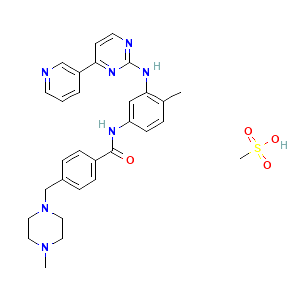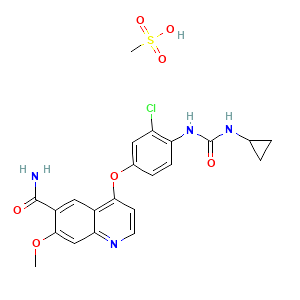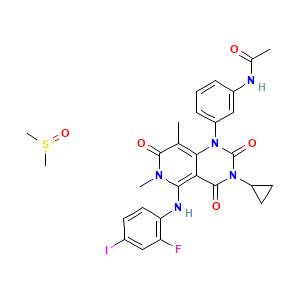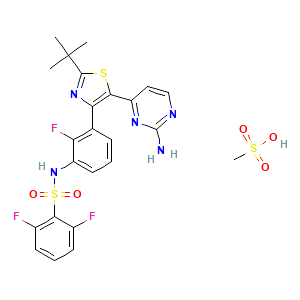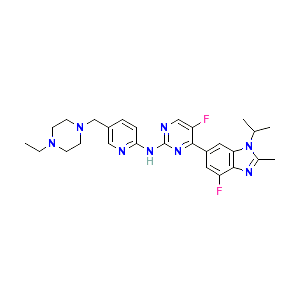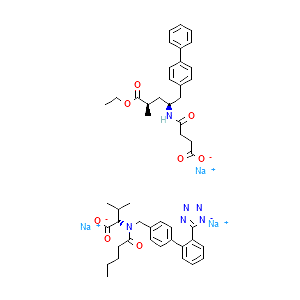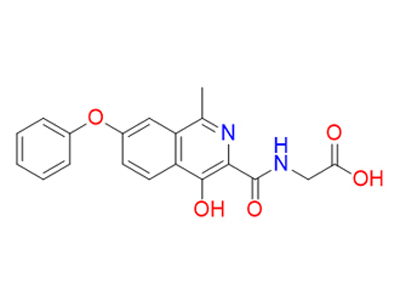Mechanism Of Action:
Imatinib mesylate is a protein-tyrosine kinase inhibitor that inhibits the bcr-abl tyrosine kinase, the constitutive abnormal tyrosine kinase created by the Philadelphia chromosome abnormality in chronic myeloid leukemia (CML). It inhibits proliferation and induces apoptosis in bcr-abl positive cell lines as well as fresh leukemic cells from Philadelphia chromosome positive chronic myeloid leukemia.
It is also an inhibitor of the receptor tyrosine kinases for platelet-derived growth factor (PDGF) and stem cell factor (SCF), c-kit, and inhibits PDGF- and SCF-mediated cellular events. In vitro, imatinib can inhibit proliferation and induce apoptosis in gastrointestinal stromal tumor (GIST) cells, which express an activating c-kit mutation.
Indication:
- Newly diagnosed adult and pediatric patients with Philadelphia chromosome-positive chronic myeloid leukemia (Ph+ CML) in the chronic phase.
- Adult patients with Ph+ CML in blast crisis (BC), accelerated phase (AP), or in the chronic phase (CP) after failure of interferon-alpha therapy.
- Adult patients with relapsed or refractory Ph+ acute lymphoblastic leukemia (Ph+ ALL).
- Pediatric patients with newly diagnosed Philadelphia chromosome-positive acute lymphoblastic leukemia (Ph+ ALL) in combination with chemotherapy.
- Adult patients with myelodysplastic/myeloproliferative diseases (MDS/MPD) associated with PDGFR (platelet-derived growth factor receptor) gene rearrangements.
- Adult patients with aggressive systemic mastocytosis (ASM) without the D816V c-KIT mutation or with c-KIT mutational status unknown.
- Adult patients with hypereosinophilic syndrome (HES) and/or chronic eosinophilic leukemia (CEL) who have the FIP1L1-PDGFRα fusion kinase and for patients with HES and/or CEL who are FIP1L1-PDGFRα fusion kinase negative or unknown.
- Adult patients with unresectable, recurrent, and/or metastatic dermatofibrosarcoma protuberans (DFSP).
- Adult patients with KIT (CD117)-positive gastrointestinal stromal tumors (GIST) that cannot be surgically removed and/or have spread to other parts of the body.
- Adult patients after surgery who have had their KIT (CD117)-positive GIST completely removed.

